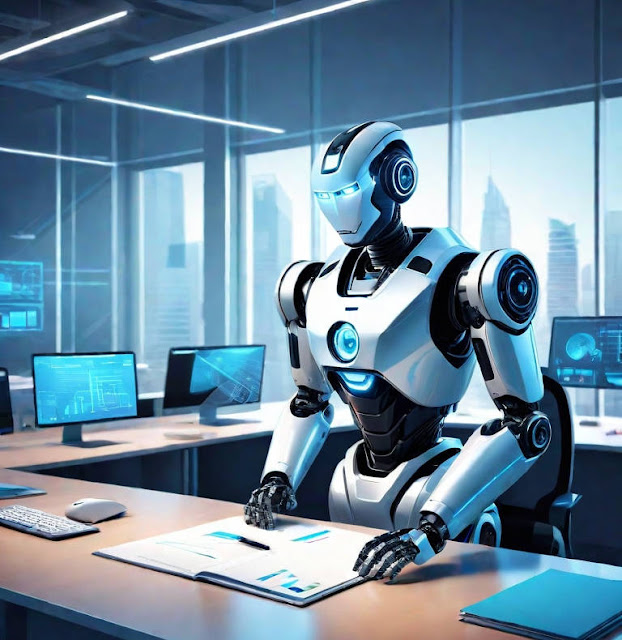Unveiling
the Future: The Impact of Artificial Intelligence on the Global Economy
In the dynamic scenario of the global economy, the rise of Artificial Intelligence (AI) emerges as a turning point, fundamentally transforming the way businesses operate and shaping the
employment landscape. In this article, we will explore the opportunities and challenges that AI presents, from task automation to the creation of new job prospects and its impact on traditional industries.
Automation and Operational Efficiency: The Silent Revolution
AI-driven automation is redefining operational efficiency across industries. Routine and repetitive tasks, once performed by humans, are now carried out by intelligent algorithms.
This not only reduces operational costs but also frees up human resources to focus on more strategic and creative activities.
In the manufacturing sector, robots equipped with AI work
alongside human teams, increasing productivity and quality. In the services
field, chatbots and virtual assistants simplify customer interactions,
providing a faster and personalized experience.
New Job Opportunities: Creating Future Professions
Impact on Traditional Industries: Adapting to the New Reality
Traditional industries, historically rooted in conventional methods, now face the need to adapt to the era of AI. Sectors such as finance, health, and education are integrating AI-based solutions to improve efficiency, personalize services, and optimize processes.
Successful AI implementation requires a cultural shift and an innovative mindset. Companies embracing digital transformation are reaping the benefits of agility and responsiveness to market demands.
Ethical and Social Challenges: Navigating the Waters of Responsibility
The successful implementation of AI requires a cultural shift and an innovative mindset. Companies that embrace digital transformation are reaping the benefits of agility and the ability to respond to market demands.
Ethical and Social Challenges: Navigating the Waters of Responsibility
Despite the opportunities presented by AI, we cannot ignore the ethical and social challenges it brings. Issues related to privacy, algorithmic bias, and the impact on the workforce demand
an ethical and responsible approach in the development and implementation of AI technologies.
It is imperative that governments, businesses, and civil society collaborate to establish regulations that ensure the ethical use of AI and mitigate potential negative impacts.
Conclusion: Navigating Towards the Future of AI-Driven Economy
As Artificial Intelligence solidifies its transformative force in the global economy, it is crucial to embrace change and capitalize on the opportunities it offers. At the same time, ethical responsibility must be at the forefront of our actions, ensuring that AI is a force for good,
driving sustainable economic growth and creating a future where innovation and humanity go hand in hand. The future of the economy is being written now, and AI is the pen shaping this bold narrative.



Comments
Post a Comment